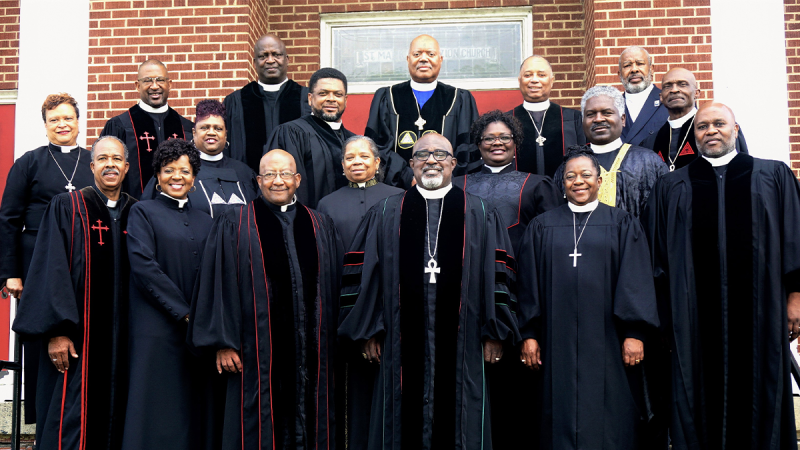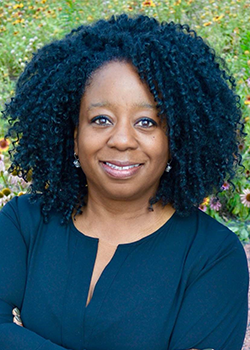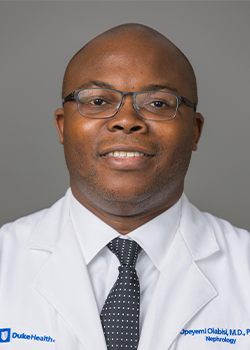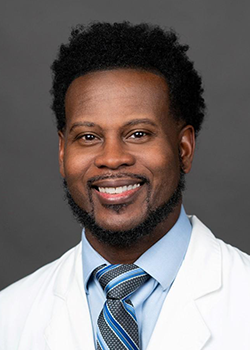
A Matter of Faith: Duke Health Partners with A.M.E. Zion Pastors to Rebuild Trust in Health Care
All relationships are built on trust, and perhaps none more so than the medical kind. Trust is essential in the doctor-patient relationship, especially when patients participate in medical research.
For people of color, that trust has long been eroded by shameful episodes in both medical care and medical research. The 1950s Tuskegee experiment, in which Black men with syphilis were denied treatment, and the use of Henrietta Lacks’ tissue samples to make significant breakthroughs in medicine without her family’s consent are among countless breaches that created an erosion of trust. Even in the modern era, health outcomes can vary widely depending on race in the United States.
Duke Health is working to rebuild trust in health care by partnering with pillars of the Black community: A.M.E. Zion pastors who have long been pivotal in the struggle for justice, equality, and civil rights. Partnering with pastors makes sense—after all, they’re in the healing business too.
The name of the partnership -- Health Equity Advocates Liaisons (HEAL) -- reflects their goal. It’s modeled after a Cultural Ambassadors program that links Yale School of Medicine with A.M.E. Zion churches in Connecticut to broaden community participation in clinical research.
“A.M.E. is known around the world as the freedom church. We boast of personalities who have been pivotal and powerful in the justice struggle…people like Harriet Tubman, Frederick Douglass, W.E.B. Du Bois, Sojourner Truth, Duke Ellington, and Coretta Scott King,” said the Rev. Daran Mitchell, pastor of Trinity A.M.E Zion Church in Greensboro and one of the founders of HEAL.
He also cites the church’s central role in such civil-rights moments as the Montgomery bus boycott in the 1950s. “We have a history of justice.”
In 2020, Duke Health made a public pledge to stand up for health equity and against racism and hate. As the pledge notes, “Good health doesn’t begin in the hospital or the clinic. It starts in our communities, our homes, our schools, and our workplaces. It involves mind, body, and spirit. Caring for all three is the reason Duke Health exists.”
Open to Change

A Duke health care leader passionate about health equity is Nadine Barrett, PhD, associate professor in the Department of Family Medicine and Community Health, co-director for equity and stakeholder strategy at the Duke Clinical and Translational Science Institute (CTSI), and the lead researcher partner for HEAL.
CTSI's Community-Engaged Research Initiative (CERI) connected with Yale to learn how to build a similar outreach program at Duke. The team coordinated outreach to Black faith leaders, inviting them to join the unique partnership.
At the inaugural meeting of HEAL six years ago Duke researchers and the pastors spent hours discussing how to mesh research interests with community interests. They talked about Tuskegee and the legacy of Lacks.
“All of us were clear about systemic and structural racism; we know it exists, that it has very real impacts,” Barrett said. “But we at Duke often don’t understand the Black patient experience, the community experience, and how that should shape research along with the delivery of care. We needed to be open for action, for change.”
The Rev. Orlando Dowdy, presiding elder of the A.M.E. Zion Sanford District, is one of 17 pastors active in the HEAL partnership. He describes a continuing process of information-sharing and said that both sides have adjusted their thinking.
Researchers should be attentive, for example, to the marketing of studies that aim to recruit traditionally under-represented groups. Do people shown in the marketing materials resemble the community? Do they represent different generations?
At the same time, the participating pastors have been ramping up their research knowledge: How do institutional review boards operate? What does a lab environment look like?
“The Black church is the centerpiece of the community for Black people,” said the Rev. Julian Pridgen, pastor of St. Mark A.M.E. Zion Church in Durham and graduate of the Duke Divinity School. “In the Black experience, the church is the place where we are cared for. And it’s perceived as the place that dispenses information, a place that can be trusted.”
In Pridgen’s words: “Stories that we read in Scripture are not there just to be read and enjoyed. They require a response. Jesus heals people. He goes where they are, he works to relieve them of their infirmities, he makes life better for them.”
Linking as it does care for the body and care for the soul, HEAL, he says, “is a perfect match to the theology we teach.”
The need for change is close to home for Pridgen, whose father-in-in law, brother-in-law, and wife, all had or now live with kidney disease. He worries about the susceptibility of his two children. His hope is that clinical trials can be the key to better manage the disease and improve the quality of life in the community.
Gaining ground in research

HEAL’s mission to inspire participation in clinical trials appeals to Duke Health nephrologist Opeyemi Olabisi, MD, PhD, an assistant professor of medicine at Duke University School of Medicine who studies a genetic mutation known as APOL1 that increases the risk of kidney disease in African Americans.
In the U.S., 17% of those with kidney disease are Black, and Black patients make up 30-40% of patients on dialysis.
“What brought me to Duke was the chance to do a lot of translational work,” said Olabisi. He found a receptive audience in HEAL’s participating pastors, particularly when he referred to “the heavy historical aspect”—the fact that the mutation originated in Africa and was transported to the U.S. because of the slave trade.
“The most important question is, ‘Can we prevent the effects of this disease from manifesting?’ And then, ‘Is there a cure?’ But this is also a story that brings together sociology, medicine, disease, and the long legacy of slavery,” the doctor said.
Although kidney disease is more common in Black people than in other racial groups, they represent less than 5% of the participants in kidney disease clinical trials.
“Their lower participation is, in part, because they are not being asked. It’s also due to a historical lack of trust in the health care system. That’s where HEAL comes in,” Olabisi said. “You reach out to faith leaders as people who inspire trust, and they serve as catalysts for the message that this research can benefit the community.”
For one HEAL project, Olabisi has conducted health screenings in Black churches to identify people who have kidney disease but are unaware of it.
Another project centers on individuals who have been screened and been shown to have kidney disease. Olabisi leads a trial investigating a drug that may block expression of the APOL1 gene and slow progression of kidney disease in some patients.
The recruitment of trial participants works, he says, because “I was able to receive practical, real-time feedback on how to communicate information on the disease to the community.”
That came first with the pastors. “They listened to the story we would tell in describing the research, and they told us how to modify it to make it more accessible. They told us how to avoid blaming Black people for suffering from the disease. And they prepared us to deal with pointed and very historically grounded questions about medical research,” Olabisi said.
“Because they are trusted members of the community, in many ways they are the gatekeepers. So, they wanted to know our research team before they introduced us to the community.
“They wanted to know that we are for real. They wanted to be able to vouch for what we are doing. And many of them participated in the research, so they weren’t just gatekeepers; they were leading by example,” according to Olabisi.
Model for quality care

The HEAL model resonates as well for Duke Health gastroenterologist and hepatologist Julius Wilder, MD, PhD, an assistant professor of medicine at Duke and co-director for CTSI's Community-Engaged Research Initiative. Wilder is passionate about eradicating hepatitis, a liver disease that disproportionately affects African Americans.
He’s also interested in leveraging the HEAL network to help researchers better understand the barriers to vaccination, particularly in communities of color. As it stands, he says, that understanding is incomplete.
Wilder would like to see researchers leaning on the community for shaping research projects—and in interpreting and disseminating the results. But achieving that vision depends on trust.
“At Duke, we have an incredible amount of technology for the treatment of disease,” he said. “But in Duke’s neighborhood, we see social drivers that affect health in a negative way.”
A unique component of HEAL is that it offers “this mechanism to implement changes that can get around barriers to good care, that can promote steps like screening and vaccination, that can activate positive interventions in individual lives,” Wilder added.
“HEAL is proof that you can build a community health structure that is sustainable, that isn’t about just making a visit and walking away.”
Robert J. Bliwise is editor emeritus of Duke Magazine.
Main Photo: A.M.E. Zion church pastors have partnered with Duke Health to help close the gap in health disparities.
